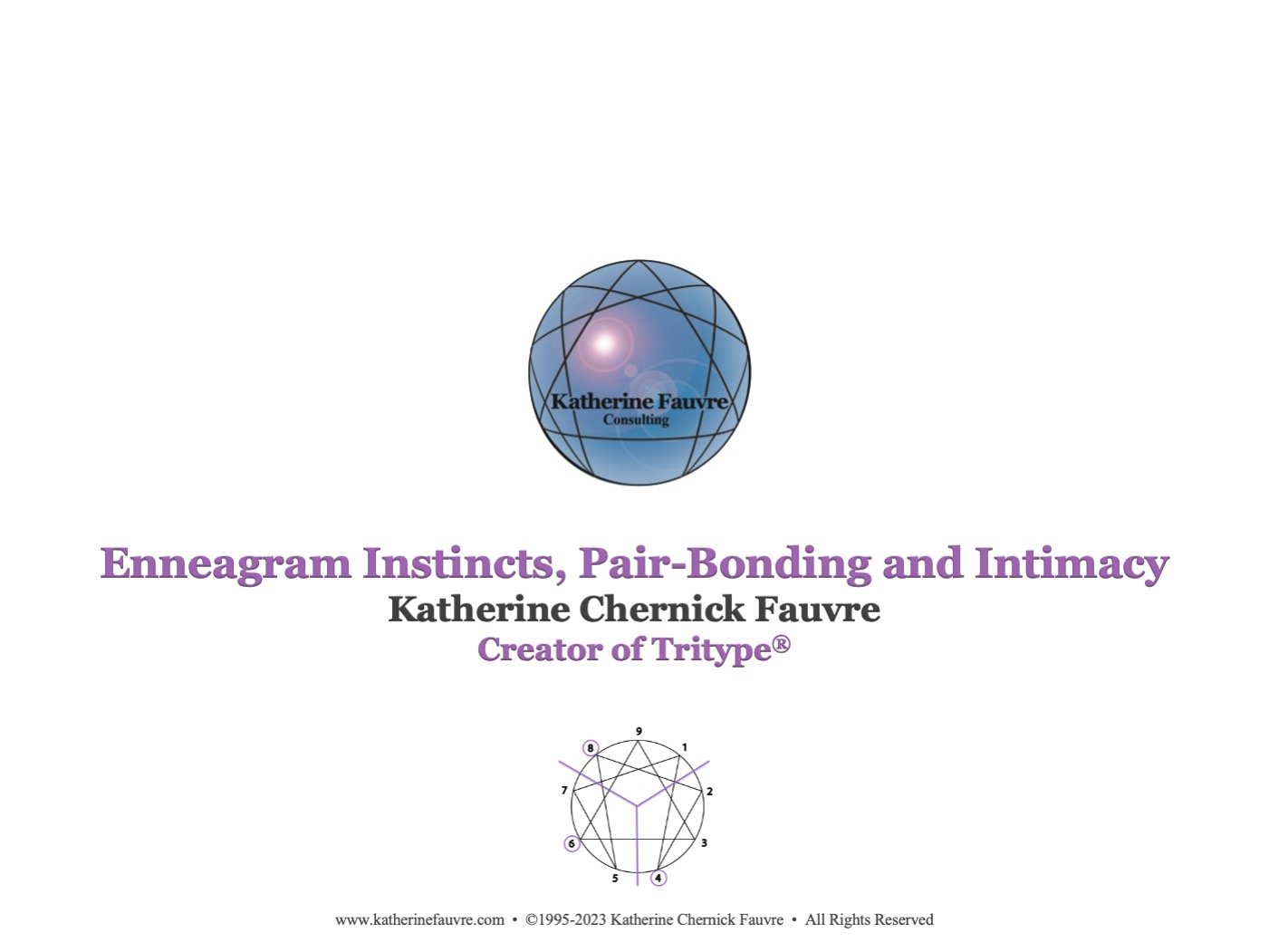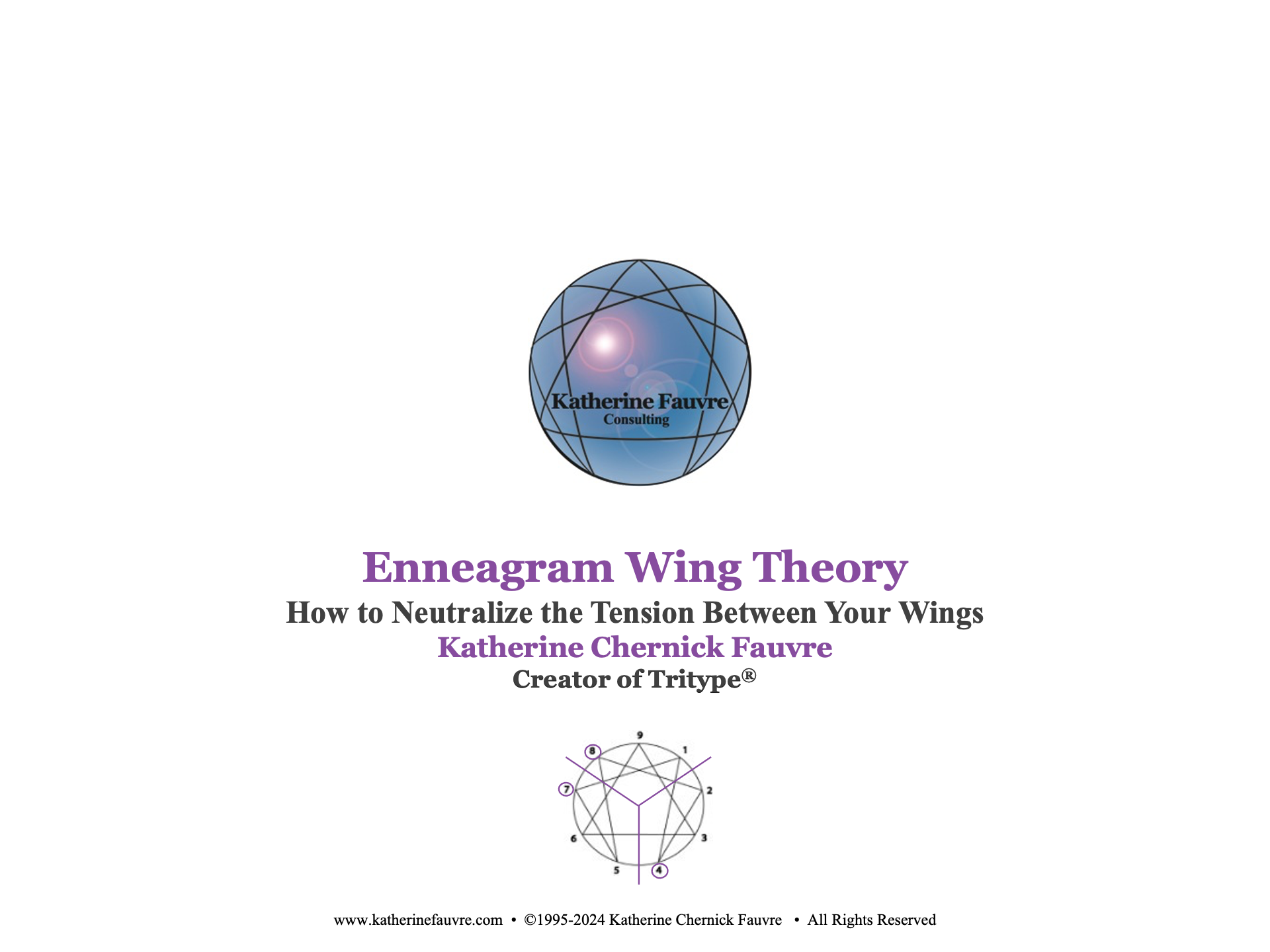Enneagram, Instincts, Pair-Bonding and Intimacy 4.0: Advanced Series 3-week Masterclass
Enneagram, Instincts, Pair-Bonding and Intimacy 4.0: Advanced Series 3-week Masterclass
Watch the recordings from Katherine’s 3-week online class on the Enneagram Instincts, Pair-Bonding and Intimacy.
More information below.
Enneagram, Instincts, Pair Bonding and Intimacy 3-week Masterclass: Advanced Series
An in-depth look at how the Enneagram Types and Instinctual Types intersect to create intimacy
In this course, we will be covering the way in which each of the three Instinctual Types shift to another Instinctual Type to ensure the needs and concerns of the primary instinct are met.
• What each Instinctual Type fears and desires in intimate relationships
• How each Instinctual Type seeks and secures a mate
A noteworthy point of interest that emerged in my first Instinctual Subtype Research Study was the manner in which the three instinctual types seek and secure a mate.
All of us have or will seek a mate at one time or another. Whether the mate is a close platonic friend or a romantic partner, the needs remain the same. Early research revealed that the dominant instinctual drive: self-preserving (survival), social (prestige), or sexual (Intimacy), will shift to the other two instincts as needed to ensure its influential role in this trialectic instinctual system. The way in which the dominant instinct employs the other two instincts appears to be very specific and predictable. The dominant instinctual drive maintains the role of the commander in chief, and the other two are channeled through its lens.
Generally, this is very primal and often unconscious. This is especially apparent with respect to the human drive to seek a mate and pair bonding but applies to all areas of life. If a relationship displays conflicting instinctual needs, the dominant drive perceives it as a threat to security and acts accordingly. Confusion about the manner in which the instinctual drives manifest to create and maintain a sense of security is often the root of misunderstandings. Such disturbances in the instinctual drive are often the catalyst for seeking counsel or therapy.
Take the Enneagram Tritype® Test v8 here.






